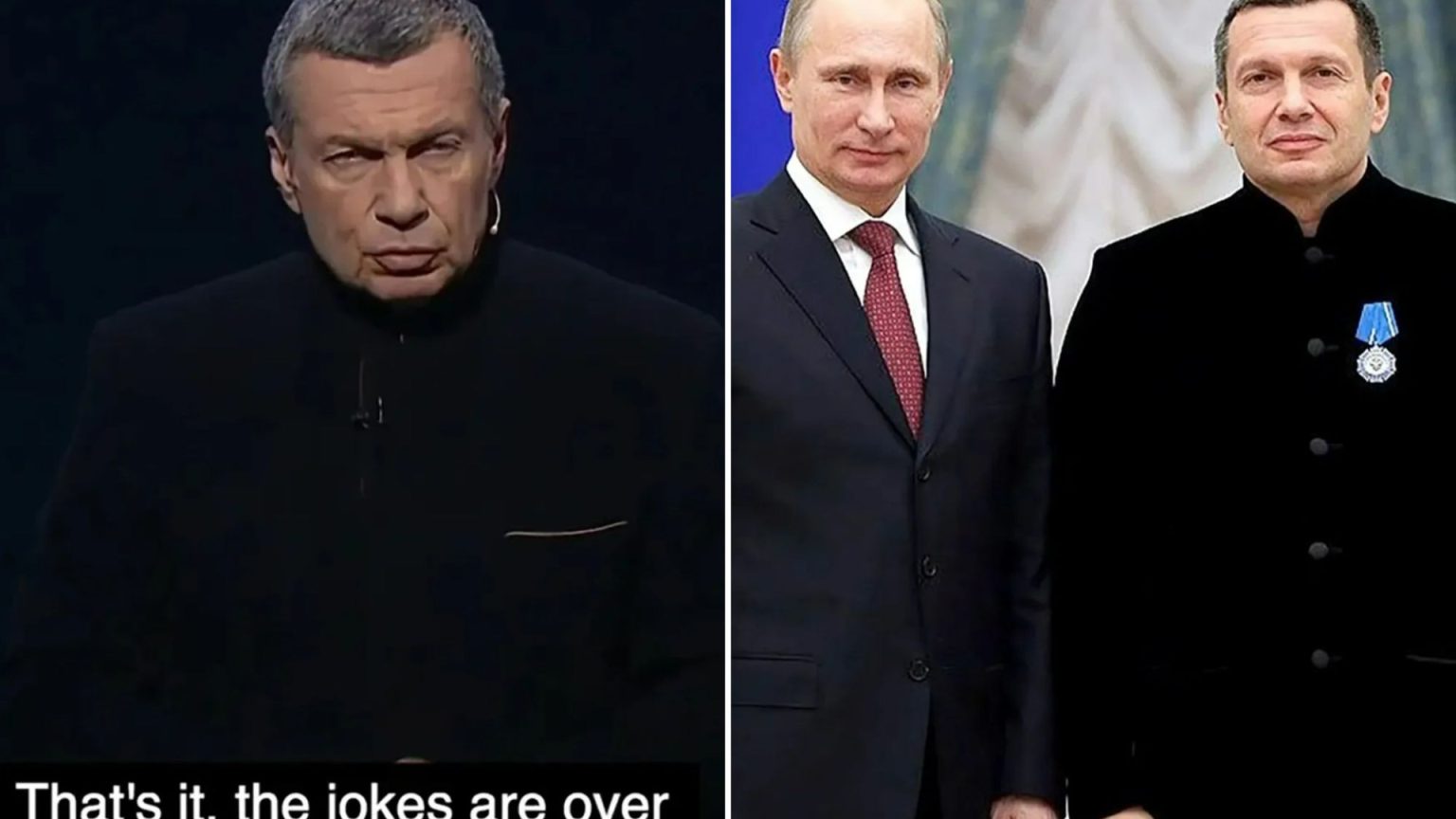Vladimir Solovyov, a prominent pro-Kremlin propagandist, delivered a chilling on-air rant urging Russia to impose the death penalty, specifically hanging, on any British nationals captured fighting alongside Ukrainian forces. Solovyov, often referred to as a “Putin puppet,” argued that the “jokes are over” and that such extreme measures are necessary to address what he termed “terrorist acts and sabotage.” He advocated for public executions as the “highest form of social protection,” a stark departure from the usual practice of prisoner exchanges. He singled out British fighters due to the UK’s significant military aid to Ukraine.
Solovyov’s diatribe extended beyond British combatants. While advocating for the execution of those fighting for Ukraine, he proposed a bizarre amnesty for Russian defectors who had joined the Ukrainian side. He suggested a deadline of February 1, 2025, allowing those who confessed their “guilt” to receive reduced sentences rather than facing execution. This offer, however, came with a chilling caveat: any defectors captured after the deadline would also face the death penalty. This proposition highlights the arbitrary and often contradictory nature of pronouncements from pro-Kremlin figures.
The fate of British prisoners of war captured by Russian forces has become a subject of significant concern. While the exact number remains undisclosed, at least one British national is currently confirmed to be in Russian custody. The experiences of previously captured Britons, such as Aiden Aslin and Shaun Pinner, paint a grim picture of the conditions they faced. Both men endured months of captivity, subjected to brutal torture, starvation, and psychological abuse. Their eventual release came through complex prisoner exchange negotiations, highlighting the precarious position of those captured in the conflict.
Aiden Aslin, a British soldier fighting alongside Ukrainian forces, detailed the systematic torture he endured during his imprisonment. He recounted being beaten, stabbed, and subjected to constant psychological torment, including being forced to listen to Soviet songs in a confined cell for extended periods. Deprived of sunlight and human contact, Aslin’s ordeal underscores the brutal treatment faced by those captured by Russian forces. His testimony aligns with numerous reports from international human rights organizations detailing widespread abuse and torture within the Russian prison system.
Shaun Pinner, another British national captured by Russian forces, suffered a similar fate. He was subjected to months of torture and starvation, ultimately being sentenced to death in a sham trial branded as a “Nazi mercenary terrorist.” Pinner’s experience, alongside Aslin’s, provides chilling evidence of the disregard for human rights and due process within the Russian judicial system. These cases underscore the grave risks faced by foreign nationals fighting in Ukraine and the potential for them to be used as political pawns in the larger conflict.
Allegations of torture within the Russian prison system are widespread and well-documented. Reports from human rights organizations and former prisoners detail the systematic use of brutal tactics, including beatings, electric shocks, suffocation, and psychological manipulation. Critics argue that the lack of accountability within the system allows these abuses to continue unchecked. The denial of due process, coupled with the impunity enjoyed by perpetrators, creates an environment where torture becomes a normalized tool of repression and control. The international community has repeatedly condemned these human rights violations, yet the Russian government continues to deny the allegations and obstruct investigations into these practices.


